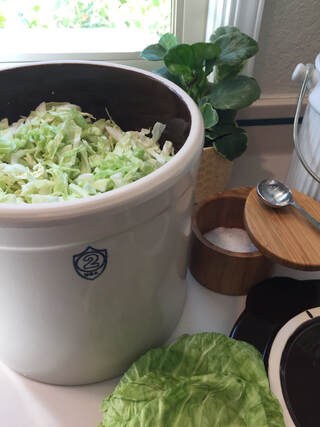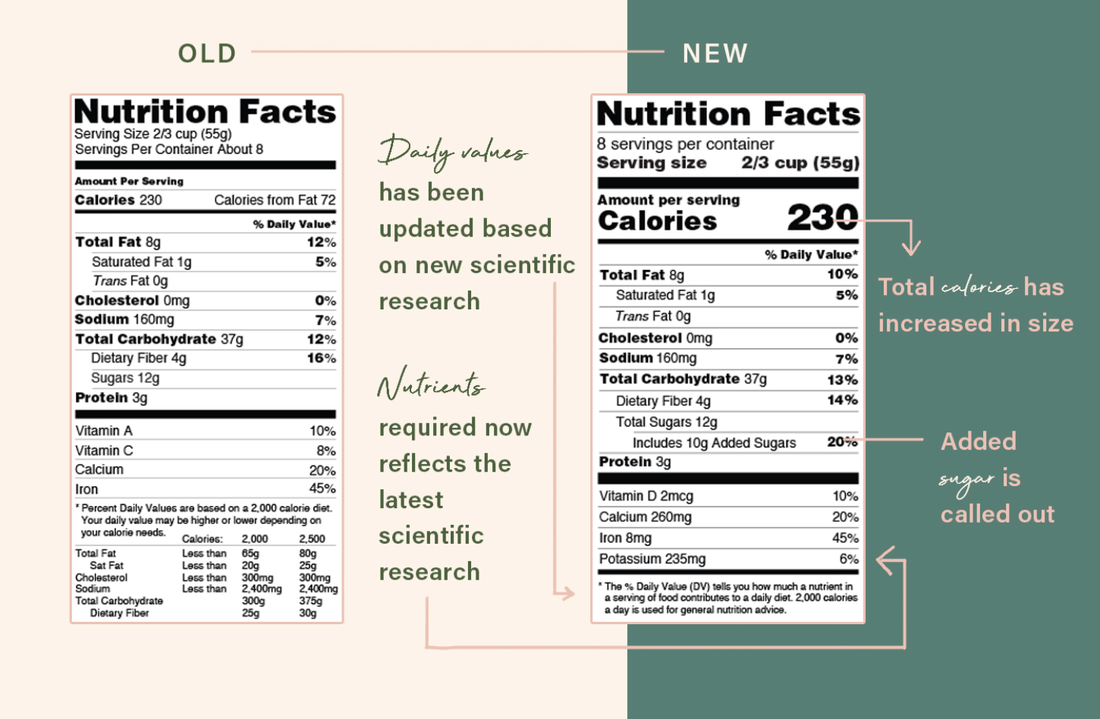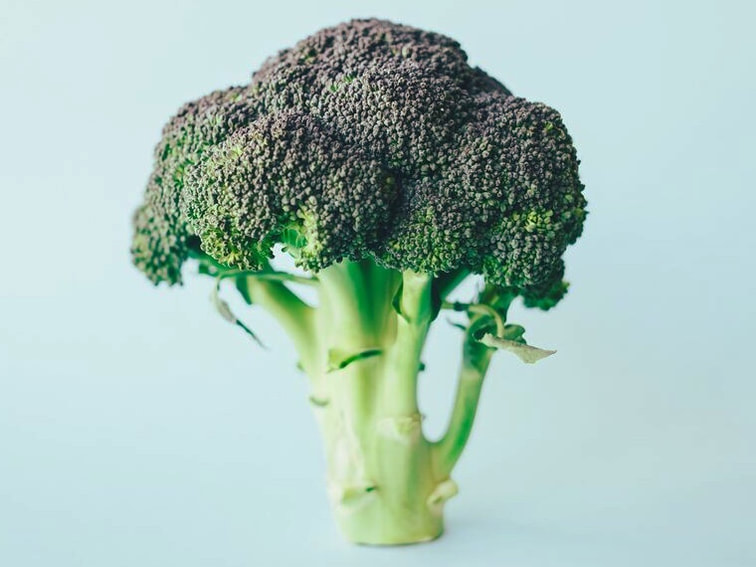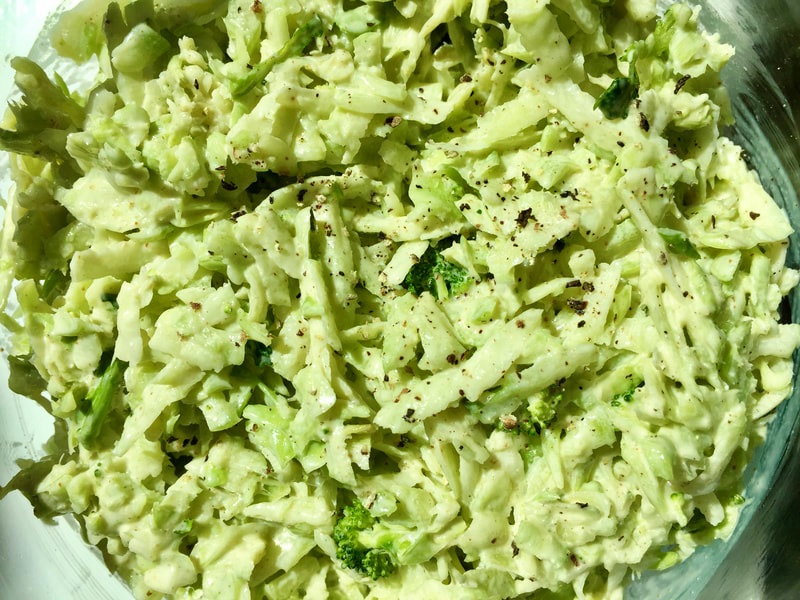|
10 Ways To Release What Is Holding You Back Thinking about spring cleaning? The best place to start isn’t the kitchen, garage or closets. This year, try starting with your mind.
0 Comments
The nights are getting longer, pumpkin-everything is in the grocery stores and the influencers are trying to outdo each other with holiday decorating where ever you scroll on social. Before we enter party season, with its influx of invitations, late nights, family commitments and steady flow of wine, now is the perfect time to catch a breath and reset ahead of the festive period. Many of us will put pressure on ourselves as the holidays – whether that means sourcing the perfect presents, attending every event we can, dashing up and down the country to visit relatives or playing host. But by taking stock of your year so far in the coming weeks, and reflecting on what you might want to adjust, you’ll be laying the groundwork for a more relaxed and enjoyable holiday season. And, making small but focused changes now could help lay the foundations for change in 2023, too. While January is the traditional time for reassessing your goals and making resolutions, it can sometimes feel like we’re setting ourselves up to fail when we attempt to give our lives a major overhaul at the start of the year. After weeks of over-indulging, we’re somehow supposed to ditch all our bad behaviour patterns and acquire plenty of healthy new ones overnight (all while managing to squeeze exercise into some of the shortest, coldest days of the year). But if you’ve put in the work beforehand, you’ll probably be well on the way to forming better habits anyway by the time January rolls around.
Ready for a pre-Christmas reset? Rather than simply survive, you can actually thrive during this time with grace and gratitude. Here are 7 tips to energetically assist you with having a conscious and stress-free holiday season: Sometimes in the health food world, root vegetables get a bad reputation because they are dense with carbohydrates. News flash, all carbohydrates are not bad and not created equally. Let’s put this thought process to rest and think about the foods as a whole. Root vegetables are REAL WHOLE FOODs and do not have any added ingredients and they are rich in nutrients to boot. Root vegetables are packed with fiber and antioxidants, and low in calories, fat, and cholesterol. Root vegetables are also excellent sources of carotenoids. These are naturally occurring pigments that may decrease the risk of certain cancers and help protect your eyes. Root vegetables balance hormones by balancing blood sugar through fiber. Root vegetables evolved to store nutrients for the plants themselves, so they offer us a true powerhouse of energy, minerals, vitamins and more. The root vegetable family includes: beets, burdock, carrots, celeriac, daikon, jicama, kohlrabi, onions, parsnips, potatoes, radishes, rutabaga, taro, turnips, yams, yucca and more. Pretty much any vegetable you find underground as the edible root of a plant can be considered in the family. Here are 5 Reasons Why Root Vegetables Should Be Eaten Everyday
But what about the carbs? Limiting your carb intake because of concerns about weight gain or insulin resistance? You may be trying to avoid “starchy” root vegetables like potatoes, yams, sweet potatoes, carrots and parsnips. But “low carb” doesn’t mean no carb. If you’re “not eating carbs” it is better to focus on cutting out simple sugars like sucrose and fructose. Both are readily absorbed in the gut, unlike the resistant starch present in many of the root veggies we’re talking about. Some great ways to get them into your diet daily, is by:
However you choose to add root vegetables to your daily diet, you’ll begin to reap the hormonal benefits in no time.
So...I LOVED our trip to Northern-most California and the Central Oregon. We explored the Bend area, as well as Shasta and Redding, California. Fell in love with the area...and I can tell you that this will NOT be our last trip there!!
Because it is fire season, we did little-to-no-planning for the trip ( hadn't even decided where we would go until 1-2 weeks prior) to ensure there were no fires or smoke in the area. We decided upon Bend because we had never been. We had heard that the weather in October could range form 80's to 40's...and that was about right!! The beginning of our trip started with high 70's and 80's and by the end fo the trip there were snow in the forecast! Loved having the range of seasons, although made it challenging to pack. It was an 8 hour drive from the bay area, so we decided to break up the driving and stopped/played at the half way point, Redding. Initially we just expected to stop for sleep, but then we quickly realized there were things to explore there. Here are the the HIGHLIGHTS from REDDING/SHASTA:
In Bend we stayed at 2 different places - First we spent 4 days in Sunriver (20 miles south of Bend) and stayed at the @riverpines house - couldn’t have been more perfect! It was a log cabin that had tons of activities and amenities, including a fuse ball table, a ping pong table, a basketball hoop, kayak’s, fat tire bikes & cruiser bikes, a Pac Man video game, and a Hottub. All of this nestled in the woods. We had loads of fun here. Then we also stayed at @riverhousebend, which was a great hotel right on the Deschutes River. Some of the ACTIVITIES we explored in the the BEND area was:
PLACES TO EAT:
I highly recommend visiting Bend...and especially in October. I would bet visiting during summer and/or winter has it's own specialness, but I can tell you that during Fall there so much to do, the weather was perfect and the contrast of the changing of the leaves added so much beauty! Vacations are so important for mental health...and after a hiatus from traveling, I couldn't have been more happy with this trip as well as rejuvenated. What is your next trip???
Years of antibiotic use, eating sugar-laden food, and eschewing microbe-feeding prebiotic fiber foods are all making you fat—but not for the reason you think. This pattern of poor eating has armed the bad bacteria who live in your gut with the weapons they need to overtake the good guys: probiotics. And when your good gut bugs are depleted, they not only won't be able to fend off weight-inducing inflammation, they also can't help you keep your metabolism humming, your immune system healthy, and your mind keen. It's why gut health is so important.
Research suggests that consuming more probiotic foods can help mend your gut and nourish your microbiome. Sauerkraut is rich in fiber, vitamins, and minerals. Its probiotics also help your body absorb these nutrients more easily, which is what makes sauerkraut more nutritious than raw cabbage or coleslaw. 1. SAUERKRAUT IS VERY NUTRITIOUS Sauerkraut is particularly nutritious because it undergoes fermentation, a process during which microorganisms on the cabbage digest its natural sugars and convert them into carbon dioxide and organic acids.
2. IMPROVES YOUR DIGESTION Your gut is said to contain over 100 trillion microorganisms or “gut flora,” which is more than 10 times the total number of cells in your body. Different probiotic strains may provide varying advantages. Thus, consuming a wide variety of strains may give you a broader range of health benefits. In this regard, sauerkraut may have the advantage. Research has reported that one serving may contain up to 28 distinct bacterial strains 3. BOOSTS YOUR IMMUNE SYSTEM In addition to being a source of probiotics, sauerkraut is rich in vitamin C and iron, both of which contribute to a healthy immune system. 4. MAY HELP YOU LOSE WEIGHT Regularly consuming sauerkraut may help you lose weight and keep it off. That’s partly because sauerkraut, like most vegetables, is low in calories and high in fiber. High fiber diets keep you fuller for longer, which may help you naturally reduce the number of calories you eat each day. Sauerkraut’s probiotic content may also contribute to a trimmer waistline. The exact reasons aren’t yet fully understood, but scientists believe that certain probiotics may have the ability to reduce the amount of fat your body absorbs from your diet. 5. HELPS REDUCE STRESS AND MAINTAIN BRAIN HEALTH Sauerkraut promotes healthy gut flora and may increase the absorption of mood-regulating minerals from your diet. Both of these effects help reduce stress and maintain brain health. 6. MAY REDUCE THE RICK OF CERTAIN CANCERS Cabbage, the main ingredient in sauerkraut, contains antioxidants and other beneficial plant compounds that may help reduce the risk of certain cancers. Researchers believe these compounds may help reduce DNA damage, prevent cell mutations, and block the excessive cell growth that typically leads to tumor development 7. MAY PROMOTE HEART HEALTH The fiber, probiotic, and vitamin K2 contents of sauerkraut may contribute to lower cholesterol levels, slight improvements in blood pressure, and a lower risk of heart disease. 8. CONTRIBUTES TO STRONGER BONES Sauerkraut contains vitamin K2, which plays an important role in bone health. More specifically, vitamin K2 activates two proteins that bind to calcium, the main mineral found in bones Most of us are pretty familiar with what a nutrition label looks like, at this point. But now, you’ll notice that it looks a bit different, thanks to a requirement from the Food and Drug Administration three years ago that is finally going into effect. As of January 1, 2020, all food and (non-alcoholic) drink manufacturers with $10 million or more in annual sales are required to have nutrition panels reflecting the new changes. (Manufacturers with less than $10 million in annual food sales have until January 1, 2021 to comply.) I, for one, am excited to see these changes roll-out! Here are the 5 major changes: The five major changes to the nutrition facts and supplement facts label
Major Change 1 : Highlight of Serving Size. This change reflects a better understanding of how people consume certain foods. By law, serving sizes must be based on what people typically eat, not how much they should eat. An example is ice cream: Previous labels indicated a single serving size of 1/2 cup, but now the serving size is 2/3 cup. It’s recommended that you view this single serving size as a guideline for the maximum amount you would eat of that food. Again, it’s based on typical habits – not nutritional guidelines. Major Change 2 : Highlight of Calories. This change is meant to provide more context for where your daily calories are coming from and how many calories you’re consuming in a typical serving. It’s recommended to also consider other values on the label, such as fat, protein, fiber, and vitamins and minerals, because 300 calories of whole, unprocessed nuts is nutritionally different than a 300-calorie candy bar. Major Change 3 : Added Sugar is Called Out. It’s recommended that you keep your added sugar consumption to less than 10% of your total daily calories. However, sugar has become prolific in our food supply, and not just in what we consider junk food. Yogurt, bread, salad dressings, sauces, and protein bars can contain added sugars, and as consumers, we need to be more aware of how much sugar we’re eating. This includes learning how to read food labels for different sugar names – did you know there are over 60?! Beware, though: Many food and beverage products can use sugar substitutes, which do not need to be included on “Added sugars” line on the nutrition facts label. That’s why recognizing all the different terms for sugar is so important. Major Change 4 : Updates to Vitamin, Mineral, and Fat Information. Vitamins A and C are no longer required to be on the nutrition facts label but can be added at the manufacturer’s discretion. In turn, vitamin D and potassium are now required because research has demonstrated that many Americans do not get their required daily amounts of these nutrients. Vitamin D is not only important for bone health but also for keeping your immune system healthy and functioning. Potassium is essential for maintaining cellular function by contributing to fluid and electrolyte balance. It’s important to note that while these vitamins and minerals are present on the label (and in the food), they might have been added during processing – check the ingredients list on the package to confirm. It’s recommended that you get your vitamins and minerals from whole, unprocessed foods, such as fruits, vegetables, legumes, and whole grains. As for fat content, total fat, saturated fat, and trans fat amounts are still included, but calories from fat has been removed due to research indicating that the type and amount of fat is more important than how many calories are from fat. Major Change 5 : Updates to Daily Value Amounts. The daily value percentages have been adjusted based on research that demonstrates how certain foods and their nutrient makeup fit into the typical 2,000-calorie diet. The footnote description of what this percentage means has also been updated to better help people understand how their food choices fit into their daily diets. theRE IS A new slaw in town - brocColi-slaw { KETO, VEGAN, GLUTEN-FREE, REFINED SUGAR FREE}9/19/2019 Have you ever wondered what to do with the left over stalk of the BROCCOLI. In our house there are no taker's for the stalk... roasted, steamed, slathered with cheese. Doesn't matter how you prepare it - we only eat the top!
I couldn't stand to waste it anymore, so I brainstormed on other ways to eat it. You can freeze it and put it smoothies. But I have so many veggies and greens waiting for the next smoothie, and consuming my freezer. So then it hit me - turn it into SLAW! If you are a slaw-lover like me, then you will love this recipe! Plus it is super easy to make! BROCCOLI SLAW {KETO, VEGAN, GLUTEN-FREE, REFINED SUGAR FREE} INGREDIENTS
Using a cheese grater, great your broccoli stalks. In a large bowl, whisk the olive oil, mayonnaise, apple cider vinegar, mustard, sugar substitute, celery seeds, salt and pepper together until fully combined. Add the broccoli slaw. Toss well to coat. Serve cold * FOR VEGAN - soak 1/3 cup cashews overnight. Put in blender with vinegar, dijon, sweetener, celery seeds, juice of 1/2 lemon and salt and pepper to taste. Then mix with slaw A lot of women feel like they need to keep up with other people. If you don’t feel like partying four nights a week after a ten-hour workday or exercising for two hours every single day, you might think there’s something wrong with you. You might even beat yourself up or feel ashamed and lazy. Ignoring your body’s signals and writing them off as laziness is not productive or helpful – it actually drains your energy even more. If you’re dealing with chronic fatigue, low sex drive, intense premenstrual syndrome (PMS), cystic acne, mild depression, or other “random” symptoms, going against your natural rhythm might be the issue. Here are some symptoms that commonly appear when you have been pushing your body rather than honoring your limits:
1. Empower yourself. When symptoms pop up, it’s easy to feel like there might be a bigger or more complex issue going on or you’re broken and can’t heal. The first step in healing is acknowledging that nothing is inherently wrong with you. You are whole exactly as you are. From a place of confidence in your body’s ability to heal itself, you can get curious about what’s going on for you and tap into the endless toolbox that is primary food. Embodying the mind-set that you are healthy now and you can become even healthier takes a huge weight off your shoulders and allows your body to naturally reach health. 2. Get real about rest. Are you chronically exhausted, trying to push through the day? Maybe you’re actually tired. Starting with weekends, let yourself sleep as long as you want. You might notice that you wake up naturally without an alarm clock during the week. Some people will be rejuvenated after one long deep sleep, while others might need to take some serious time off to come back into balance. Sleep is a requirement for good health. Listen to your body and sleep when you’re tired. 3. Balance your nervous system. Most modern people spend the majority of their lives in the sympathetic nervous system state, aka the “fight or flight, stranger-danger” zone. That feeling you get when someone creeps up behind you and surprises you – or, perhaps less likely, when you’re getting chased by a bear. Your body doesn’t know the difference between those literal stressors and chronic stress related to work or difficult relationships. When your body is in this sympathetic state, it can’t repair. When you are relaxed and calm, your body is in the parasympathetic state – referred to as the “rest and digest” system. This state is brought on by sleep, laughing, meditation, qigong, reiki, and physical touch with a loved one. Your body has to be in the parasympathetic state to heal and evolve. The more you can activate your parasympathetic nervous system by relaxing and having fun, the healthier you’ll be – physically and mentally. 4. Evaluate exercise. It might surprise you, but sometimes the harder you work out, the more stress you actually put on your body. Depending on your constitution and condition, you may actually need gentle exercise, like yoga or tai chi. Certain forms of rigorous exercise trigger the stress response, so make sure you balance your hard-core workouts with practices that are easier on the body.Gentle exercise might include yoga, meditation, or dance. You might discover that your body responds really well to these more gentle practices. Experiment for a few weeks and see how your body feels. Take some time this week to experiment with more rest, relaxation, and community connection.
Remember, there is nothing wrong with you; your body innately knows how to heal itself. You are healthy and taking empowered steps to become even healthier! There has been lots of dialogue around Body Positivity recently, but what does that really mean? In todays' culture there is no problem telling us how to take care of ourselves, but not always in ways that are healthy and sustainable. We're constantly bombarded with perfected and altered images of ideal skin and sculpted bodies. Not only is this impractical to obtain and maintain, but it is also an unrealistic ideal based solely on the ego and psychical appearance, making us feel like once we get healthier we will look "better" and that we will be happier once we get "fit". The bigger picture is that body positivity is all about self love, which come from within. Over the years, I have had my own ups and downs about my own body image. I always had an athletic build, but during times of high stress, I would do less exercise and would supplement with more unhealthy foods and drink. Eventually adding on extra pounds. There were times I would beat myself up, or feel ashamed. But as I got older I realized, that my inner confidence in myself allowed me to overshadow my shame around my appearance. Overtime, I learned to love myself overweight or not, because I loved WHO I was. I gave myself permission to find happiness and peace. Through that self-love, I started exercising to get stronger. Through that self love, I started eating more vegetables. Through that self love, I allowed myself to eat pizza, or ice cream, or etc...all without judgement or fear The goal was no longer about losing weight, but how to feed my soul so that I could become the healthiest version of ME...on that day, and as I am! TOP 7 TIPS TO PROMOTE A BETTER POSITIVE BODY IMAGE WITH SELF LOVE
|
HealthstyledHealth | Habits | Hormones Categories
All
Archives
April 2023
|
















 RSS Feed
RSS Feed